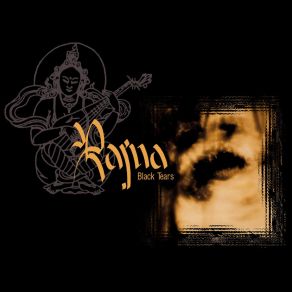Black Tears
Download links and information about Black Tears by Rajna. This album was released in 2005 and it belongs to New Age, Electronica, Rock, Alternative genres. It contains 17 tracks with total duration of 01:18:38 minutes.

|
|
|---|---|
| Artist: | Rajna |
| Release date: | 2005 |
| Genre: | New Age, Electronica, Rock, Alternative |
| Tracks: | 17 |
| Duration: | 01:18:38 |
| Buy it NOW at: | |
| Buy on iTunes $10.99 | |
| Buy on Amazon $7.99 | |
Tracks
[Edit]| No. | Title | Length |
|---|---|---|
| 1. | Black Tears (Edit) | 1:29 |
| 2. | Traoma | 6:58 |
| 3. | Sanctuary | 4:45 |
| 4. | Pearl of Ashes | 4:47 |
| 5. | Glorian | 4:56 |
| 6. | Sién | 3:54 |
| 7. | The Door of Serenity | 6:06 |
| 8. | Mona Lyssa | 3:49 |
| 9. | Shalai | 3:05 |
| 10. | Cantara | 5:14 |
| 11. | Kalimbha | 5:17 |
| 12. | Shushai | 3:43 |
| 13. | Dervishing | 5:06 |
| 14. | Aswan | 5:39 |
| 15. | Trehya Man | 4:20 |
| 16. | Buried Philae | 4:55 |
| 17. | Black Tears | 4:35 |
Details
[Edit]Serving as a handy single-disc introduction for newcomers, plus an overview with rarities for the hardcore, Black Tears serves to showcase Rajna's own overtly post-Dead Can Dance approach to music pretty well. (Credit to them for not merely including their cover of that band's "Cantara," but mentioning Lisa Gerrard in the thank you list.) Starting and ending with two versions of the title song, an otherwise unreleased effort, Black Tears lives up to the melodrama of its name well — if, as mentioned, the band works in a now-well-trodden field, its own spin on the mix-and-match approach of world musics with a darker undertow is often murkily captivating. By mostly (if not always) forgoing the heavy percussion that marks many DCD songs at their best in favor of gentler beats and slower tempos, when present, Rajna explores a more meditative approach, not exactly consciously ambient but conducive to reflection and the feeling of a distanced ritual, laden with electronic textures and plenty of hammered dulcimer parts. Jeanne Lefebvre's singing is appropriately haunting, while Fabrice Lefebrve's arrangements, if of a piece, are still duly mood setting. Of the new or rare numbers, highlights would include "Sien," where Jeanne stretches her vocal capacities in a beautiful fashion while the extremely measured arrangement slowly unfolds below, and the striking "Kalimbha," with a simple but extremely effective string part that adds definite drama to the proceedings. "Shushai," with its open embrace of a polite but still propulsive enough dance beat, is perhaps the most surprising, but the duo rides out the combination well. Other selections like "Mona Lyssa" are fine enough but more continuations of previous approaches, though they're still perfectly listenable as is.